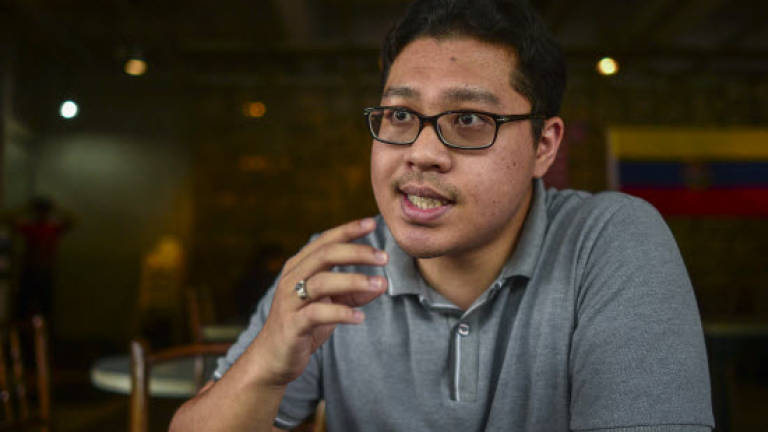The sci-fi advocate


KUSHAIRI ZURADI discovered late last year that not many publishers were keen to publish Malay science fiction books when he offered his collection of short stories to them.
The 25-year-old author and medical school graduate recalls: "Some publishers believe the readership for Malay science fiction is too small [for them] to make a decent profit and they do not want to take a chance on these novels."
Realising this, in August last year, Kushairi decided to found his own publishing company, Simptomatik Press, to self-publish his first book, Biohazard, featuring 14 of his short stories. All 14 stories dealt with microorganisms.
"In my final year in medical school, I studied microorganisms and I was fascinated by their life-cycles," says Kushairi, who is currently waiting to start his housemanship.
"You cannot see them but they are everywhere. We have been taught that 90% of [the cells in the human body are actually] organisms ranging from bacteria to parasites."
Apart from publishing his own book, Kushairi has helped other science fiction writers get their works published.
To date, his Simptomatik Press has published Fadli Al-Akiti's Gugurnya Azazil, Nor Azida Ishak's Resesif and Fadzlishah Johanabas' Faith and the Machine, which are all available in bookstores.
A fifth book – Suatu Hari Nanti Manusia Akan Melupakan Tuhan is written by Fahmi Mustaffa – is due out at the end of the year.
This science fiction tale takes place in a post-apocalyptic Kuala Lumpur where the survivors have created a new human race with the help of a computer chip.
They believe that their creations are better than God's, and over time, they forget about their own creator and about religion.
However, there is a small community on the fringes of Kuala Lumpur who still believe in God, and this sparks a conflict between both factions.
Kushairi says he hopes to encourage more science fiction writing among the Malay community in Malaysia.
"I have a dream where Malaysia will one day host a science fiction literature festival."
In fact, Kushairi has plans to create another company that will publish factual books focusing on science subjects in Malay such as genetics.
He believes one of the reasons why Malay-language science fiction is not as developed as other genre is because many Malays are not interested in reading scientific books.
"I am hoping to change this scenario," he says. "These scientific books will not be complicated. In fact, I will be using simple terms to explain the scientific theories. They will be reader-friendly.
"I want to increase the science knowledge among Malaysians. I believe once they show interest in science, they will pick up Malay science fiction novels to read.
That way, we will see a growth in the Malay science fiction readership."
One wonders if Kushairi, as a Muslim, feels conflicted in writing and publishing science fiction books?
"Honestly speaking, I do not have that kind of dilemma," he says. "The first word of the Quran that was revealed to Prophet Muhammad was read.
"So it shows that Islam encourages us to read and gain knowledge, including scientific knowledge.
"In fact, history has shown that Muslim scholars in the past have dabbled in scientific experiments and contributed vastly to scientific development.
"Whenever I write science fiction, I always go back to my creator and I never forget my faith."
Kushairi himself only became an ardent reader in his late teens, when he got hooked by Dan Brown's mystery thriller, The Da Vinci Code.
"I was only 17, then," he recalls.
Another novel that impressed him was Faisal Tehrani's 1511, which takes place in a future where a Muslim army takes over the White House.
"The story was so believable," he says. "I love the book so much that I forced my friends to read it. In fact, I bought a few copies and distributed them to my close friends for them to read."